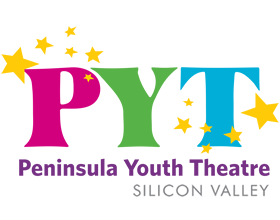Audition Tips
Auditions can be scary – especially if it’s your first time. Here are our tips for making sure you are ready for your audition!
Preparing for your Audition
- Select a one minute monologue and one minute song to perform.
- Make sure you know your song and monologue so well that you won’t forget it, even if you’re nervous. Being nervous is a totally normal part of auditioning, and the best way to combat those nerves is to feel 100% prepared.
- Practice your audition full out speaking with a loud clear voice. What we rehearse is what we perform, so if you only practice quietly in your head, your audition will be quiet, too. Make sure that each time you practice you use good breath support, diction, and you make strong acting choices.
- Practice your opening introduction each time you rehearse your monologue. Always begin your audition with, “Hello, my name is __________ and I will be performing _________.”
- Practice your monologue and song in front of other people. You’ll be auditioning for the artistic staff, but there will also be up to 9 other actors in the room with you. Don’t let those extra people catch you off guard.
- On the day of your audition, make sure you are well rested and fed, and don’t forget to drink plenty of water so that you’ll be well hydrated.
- Dress appropriately for your audition. Wear comfortable clothing that you can move freely in and close toed shoes or dance shoes.
- Make sure you bring everything you need with you to your audition: a water bottle, your recorded accompaniment, your photo and paperwork, and your monologue and music to review before you go into your audition.
- Remember that directors pay attention to more than just your monologue and song. If you’re quiet, attentive, and respectful while you wait your turn, they will see that. Conversely, they will also notice when you are chatting with your neighbor, playing with your phone or fidgeting in your seat. Your behavior can make or break and audition.
- Have fun during your audition! Auditioning can be scary, but it can still be fun at the same time. Think of it like bungee jumping, watching a scary movie, or going through a Halloween corn maze. Use that nervous energy to give you audition that extra pizazz that will help you stand out from the crowd.
Choosing a Monologue
- Choose a monologue from a play. Television and movie monologues are usually associated with a celebrity performer, and the directors can’t help but compare you to the original artist. Plays are written for multiple interpreters and usually not associated with any single performer. Stand-alone monologues (like the ones you find online or in monologue books) are ok, but they require you to come up with the backstory for your character. A monologue from a play clearly provides you with a context and reason for the character to say these words, but make sure you read the whole play so you get all of that information.
- Make sure your monologue is no longer than 1 minute in length when performed.
- Choose an age appropriate monologue.
- Choose a monologue that is active, and contains a beginning, middle, and end. Avoid monologues that simply recount what happened in the past, as these can be traps in which you play attitude and mood rather than action.
- Know whom you are talking to and what you want from them.
- Choose a monologue that engages your interest and is about something you care about. If you do not like your monologue, you probably won’t practice it very much.
- Avoid dialects, exaggerated characterizations, cartoon or two-dimensional characters and/or use of props.
- There are many lists of overdone monologues available (search “overdone monologues” on the Web). Check a few of them, and make sure your monologue isn’t on one of those lists.
- Do not choose a monologue from the play you’re auditioning for.
- Choose a monologue with appropriate content. Monologues with strong language, mature themes or innuendo are not appropriate for a PYT audition.
- Choose a monologue that contains a change of some kind. It could be serio-comic (i.e. begins funny but then turns serious at the end), or demonstrates the character experiencing a change in attitude or perspective. The idea is to give yourself as many opportunities to be cast as possible, so showing you’re range is key in helping the director find the right role for you.
- PYT has a binder full of monologues at PYT Studios and at the Mountain View Library. If you’re having trouble finding a good monologue feel free to stop by during office hours and take a look at the binder.
Choosing a Song
- Choose a song from a musical that is close in style to the musical you’re auditioning for. Pop songs don’t give the directors as much information about your vocal or acting abilities as songs that were written for musical theatre.
- Choose a song that sits comfortably in your range but shows as much of your range as possible.
- Choose a song for which you can find recorded music in the right key for your voice. The music should be instrumental (no voices).
- Make sure you’re prepared to sing only a minute of the song. You can either prepare to stop singing at the minute mark or use software to cut the recording down to the section that best shows off your voice.
- Choose a song that allows you to make specific acting choices while singing.
- Choose a song that provides a contrast to your monologue selection. If your monologue was broad and comedic, try a song that will demonstrate your ability to make more natural acting choices.
Getting Ready for a Dance Audition
- When you do the dance portion of the audition, you will be taught a dance combination by the choreographer and then asked to perform it in small groups. You will not have to prepare anything in advance.
- Make sure you are dressed to dance. Comfortable clothes you can move in are key. You also want to make sure you have on shoes you can dance in. If you own jazz shoes, they are always a good choice. If you don’t, don’t go out and buy them for the audition. Wear a comfortable pair of closed toed shoes that are flexible enough for you to be able to point your toes. Uggs, sandals, and flip-flops are not recommended for either dance or acting/vocal auditions.
- If you don’t have a ton of dance experience, don’t worry! Energy, enthusiasm, and a great big smile will get you noticed.
- If you do have dance experience, practice learning new routines quickly with your dance friends. Remember to keep your chin up, be specific with your hands and feet (energy in hands, pointed toes, etc.), and keep smiling. If you’ve got great technique, big energy and a bigger smile will put you over the top in a dance audition.
- Remember that in an audition it’s better to be big and wrong than little and sort of right. Commit to your movement, put all your energy into it, and don’t worry if you turn the wrong way or start on the wrong foot. Those things are easy to fix; self-confidence is not. Show the Choreographer you believe in yourself and you’re willing to go all out, even when you’re unsure of what you’re doing.






